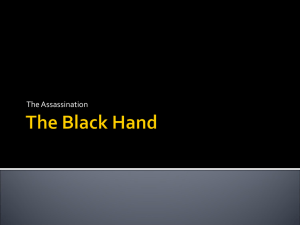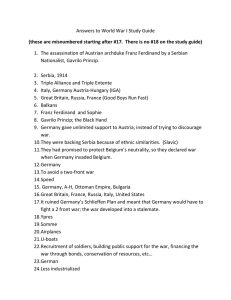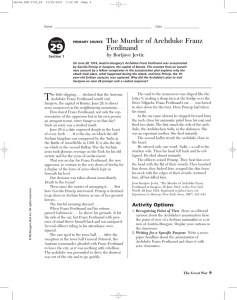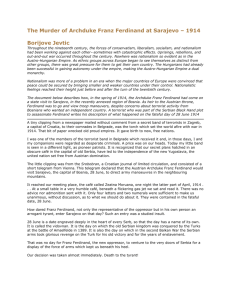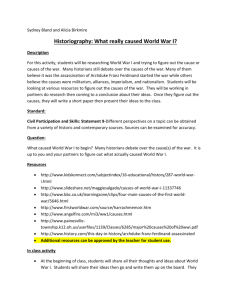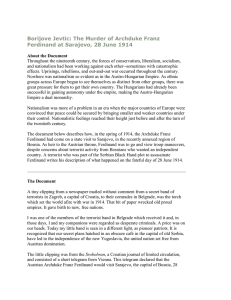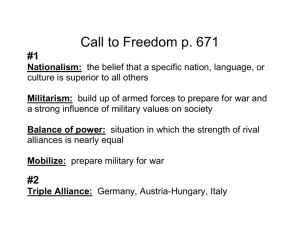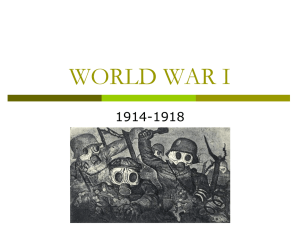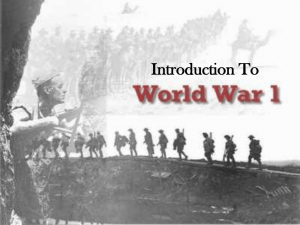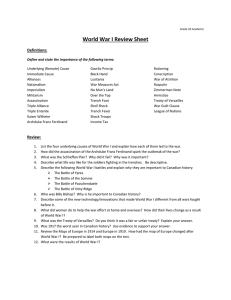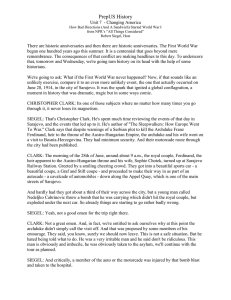The Murder of Archduke Francis Ferdinand
advertisement
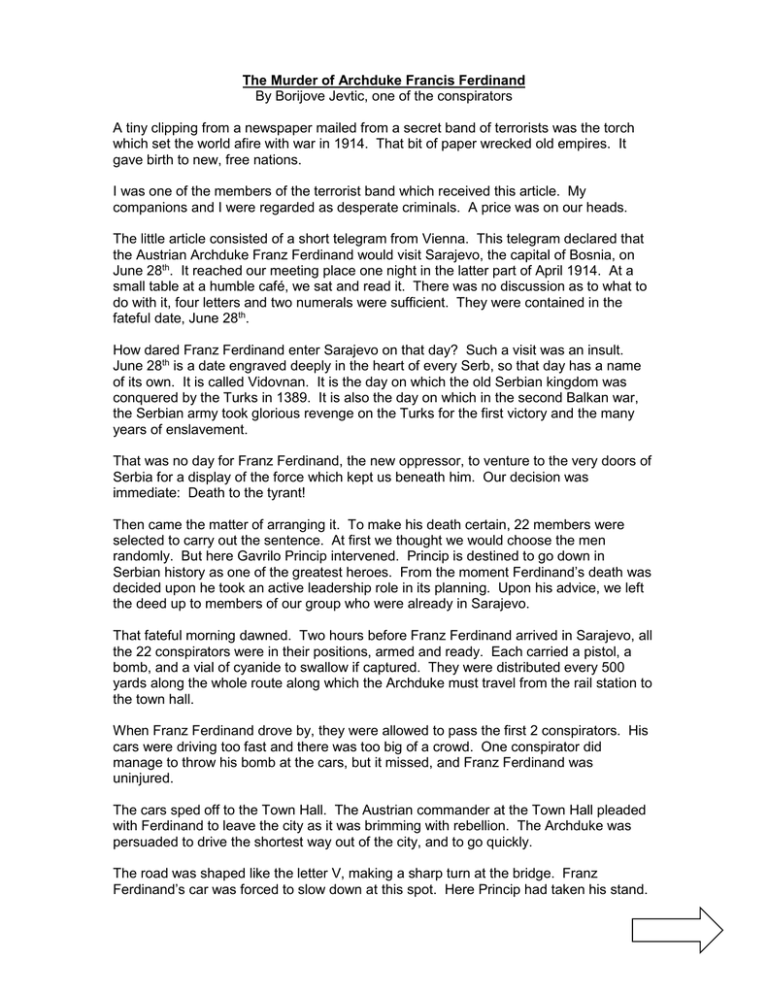
The Murder of Archduke Francis Ferdinand By Borijove Jevtic, one of the conspirators A tiny clipping from a newspaper mailed from a secret band of terrorists was the torch which set the world afire with war in 1914. That bit of paper wrecked old empires. It gave birth to new, free nations. I was one of the members of the terrorist band which received this article. My companions and I were regarded as desperate criminals. A price was on our heads. The little article consisted of a short telegram from Vienna. This telegram declared that the Austrian Archduke Franz Ferdinand would visit Sarajevo, the capital of Bosnia, on June 28th. It reached our meeting place one night in the latter part of April 1914. At a small table at a humble café, we sat and read it. There was no discussion as to what to do with it, four letters and two numerals were sufficient. They were contained in the fateful date, June 28th. How dared Franz Ferdinand enter Sarajevo on that day? Such a visit was an insult. June 28th is a date engraved deeply in the heart of every Serb, so that day has a name of its own. It is called Vidovnan. It is the day on which the old Serbian kingdom was conquered by the Turks in 1389. It is also the day on which in the second Balkan war, the Serbian army took glorious revenge on the Turks for the first victory and the many years of enslavement. That was no day for Franz Ferdinand, the new oppressor, to venture to the very doors of Serbia for a display of the force which kept us beneath him. Our decision was immediate: Death to the tyrant! Then came the matter of arranging it. To make his death certain, 22 members were selected to carry out the sentence. At first we thought we would choose the men randomly. But here Gavrilo Princip intervened. Princip is destined to go down in Serbian history as one of the greatest heroes. From the moment Ferdinand’s death was decided upon he took an active leadership role in its planning. Upon his advice, we left the deed up to members of our group who were already in Sarajevo. That fateful morning dawned. Two hours before Franz Ferdinand arrived in Sarajevo, all the 22 conspirators were in their positions, armed and ready. Each carried a pistol, a bomb, and a vial of cyanide to swallow if captured. They were distributed every 500 yards along the whole route along which the Archduke must travel from the rail station to the town hall. When Franz Ferdinand drove by, they were allowed to pass the first 2 conspirators. His cars were driving too fast and there was too big of a crowd. One conspirator did manage to throw his bomb at the cars, but it missed, and Franz Ferdinand was uninjured. The cars sped off to the Town Hall. The Austrian commander at the Town Hall pleaded with Ferdinand to leave the city as it was brimming with rebellion. The Archduke was persuaded to drive the shortest way out of the city, and to go quickly. The road was shaped like the letter V, making a sharp turn at the bridge. Franz Ferdinand’s car was forced to slow down at this spot. Here Princip had taken his stand. As the car came abreast, Princip stepped from the curb, drew his automatic pistol from his coat, and fired two shots. The first struck the wife of the Archduke, the Archduchess Sophie, in the abdomen. She was an expectant mother. She died instantly. The second bullet struck the Archduke close to the heart. He uttered only one word; “Sophie” – a call to his stricken wife. Then his head fell back and he collapsed instantly. The officers seized Princip immediately. They beat him over the head with the flat of their swords. They knocked him down, they kicked him, scraped the skin from his neck with the edges of their swords, tortured him, all but killed him. Then he was taken to the Sarajevo gaol (jail). The next day he was transferred to the military prison and the round-up of his fellow conspirators proceeded, although he denied that he had worked with anyone. The following day, they put chains on Princip’s feet, which he wore until his death. His only sign of regret was the statement that he was sorry he had killed the wife of the Archduke. He had aimed only at her husband. The Austrians arrested every known revolutionary in Sarajevo, and I was naturally among them. But they had no proof of my connection with the crime. I was placed in the cell next to Princip’s and when Princip was taken out to walk in the prison yard, I was taken along as his companion. Princip, aged 19 when this occurred, was sentenced to twenty years in prison. This was the maximum penalty for a minor. Suffering from tuberculosis of the bone, he died in a hospital in 1918.
